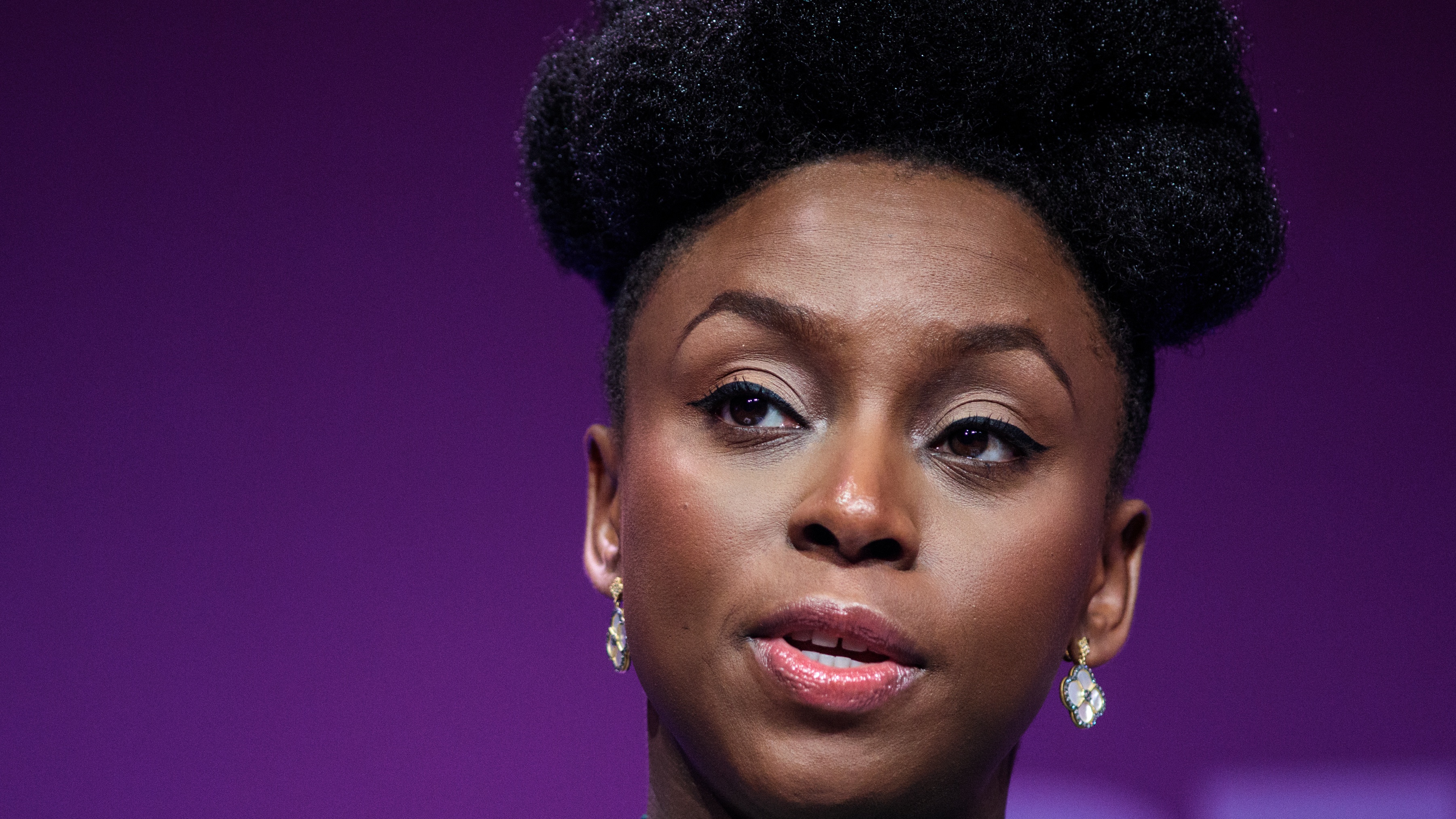Nigerian author Chimamanda Ngozi Adichie is engulfed in a heated and complex debate after her newly published article criticized two former writing students.
Her essay, published on her website and entitled "It Is Obscene: A True Reflection In Three Parts," addresses an unnamed Nigerian writer's exploitation of Adichie after their friendship faltered. The author also discusses feminism and the age of cancel culture on social media.
“When you are a public figure, people will write and say false things about you. It comes with the territory,” the Half of A Yellow Sun author began in her piece. “Many of those things you brush aside. Many you ignore. The people close to you advise you that silence is best. And it often is. Sometimes, though, silence makes a lie begin to take on the shimmer of truth.”
“In this age of social media, where a story travels the world in minutes, silence sometimes means that other people can hijack your story and soon, their false version becomes the defining story about you,” she continued.
Adichie goes on to discuss the feud between her and the two unnamed students, one of which is presumed to be transgender.
The author recalls in her published essay a debacle stemming from 2017 after she said “a trans woman is a trans woman.”
"My feeling is that trans women are trans women” she said during an interview with the U.K.‘s Channel 4, NPR reported. “I think if you've lived in the world as a man, with the privileges the world accords to men, and then change gender, it's difficult for me to accept that then we can equate your experience with the experience of a woman who has lived from the beginning in the world as a woman, and who has not been accorded those privileges that men are."
Although it is not clear who specifically Adichie is referring to in her essay, a former student of hers, Akwaeke Emezi, took to Instagram on Wednesday to address the Americanah author’s newest reflections.
“I am not going to read what home girl wrote and do like a blow-by-blow rebuttal of it, because I am not even going to read it. Because it doesn’t affect my life,” they said.
“I am just going to poke my head in, remind us that we matter, that we are important, that our worlds are f**king bigger than anything that these people can ever imagine and that we don’t ever have to be legible to them. We don’t have to be validated by them,” they stated.
In her essay, Adichie also mentioned that the writers took advantage of her status as a prominent figure and perpetuated a false narrative of her.
“It is a simple story – got close to a famous person, you publicly insulted the famous person to aggrandize yourself, the famous person cut you off, you sent emails and texts that were ignored, and you then decided to go on social media to peddle falsehoods,” the 43-year-old wrote.
"I knew this person had called me a murderer, I knew they were actively campaigning to 'cancel' me and tweeting about how I should no longer be invited to speak at events," she added.
Adichie then concluded by stating social media’s widespread cancel culture lacks “compassion” and that young people are so afraid of being publicly crucified that they sacrifice “the opportunity to think and to learn and to grow.”
“I have spoken to young people who tell me they are terrified to tweet anything, that they read and reread their tweets because they fear they will be attacked by their own,” she said.
“The assumption of good faith is dead. What matters is not goodness but the appearance of goodness. We are no longer human beings. We are now angels jostling to out-angel one another. God help us. It is obscene,” she concluded.
